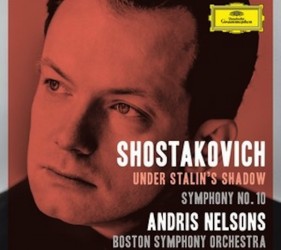Fuse News: 2016 Grammys for Classical Music
The big news was the well-deserved Grammy for best orchestral performance that the BSO and current music director Andris Nelsons won.

By Jonathan Blumhofer
Though the classical section of the 58th Grammy Awards didn’t turn out to be a clean sweep for nominated Boston ensembles – Boston Baroque’s account of Monteverdi’s Il ritorno d’Ulisse in Patria and the Boston Modern Orchestra Project’s recording of Andrew Norman’s Play were passed over – it wasn’t a total wash. Former Boston Symphony Orchestra (BSO) music director Seiji Ozawa took home a trophy for his recording of Ravel’s L’Enfant et les sortilège and Shéhérazade. Coming on the heels of a decade of serious health crises for the conductor, it’s an especially welcome feather in his cap. Also, former BSO assistant conductor Ludovic Morlot received a Grammy for an all-Dutilleux disc made with his new orchestra, the Seattle Symphony. And BSO conductor emeritus Bernard Haitink was recognized for his account of Beethoven’s Missa solemnis with the Bavarian Radio Symphony.
But the big news from the night (at least as far as classical music is concerned) was the well-deserved Grammy for best orchestral performance that the BSO and current music director Andris Nelsons won for their recording of Shostakovich’s Symphony no. 10 and the Passacaglia from Lady Macbeth of Mtsensk, the first installment in their multi-part “Under Stalin’s Shadow” series on Deutsche Grammophon. It’s Nelsons’ first Grammy and the BSO’s eighth. Reviewing the final concert from which the recording was drawn last April, I wrote that I thought it “the strongest performance…yet…from Nelsons and the BSO. There were no weak links, technically, musically, or interpretively.” And I thought the disc itself did the event justice: “it’s hard to imagine a performance of more impact, depth, and brilliance,” I wrote after hearing it in July, one filled with “a host of magnificently played solos” and a “unanimity of expression, depth of feeling, and technical proficiency” that did Shostakovich, Nelsons, and his new orchestra proud. While it’s easy to be dismissive about some aspects of the Grammys, this accolade is at least fully justified. Would that the recognition could be shared by Boston Baroque, BMOP, and Andrew Norman, too, but that’s another story for another day.
